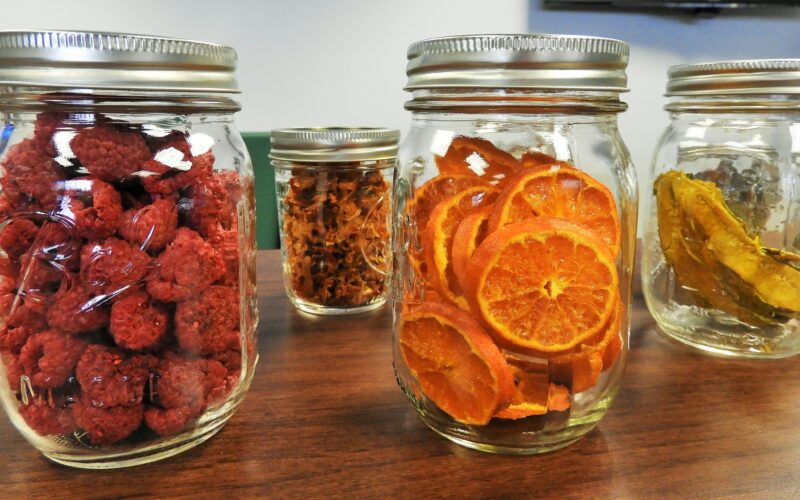With more people staying at home and avoiding crowds, a lot of homeowners are turning to home prepping as a way to cut back on trips to the store and avoid shortages. Unfortunately, many people find themselves overwhelmed. Sometimes it’s hard to know exactly what to stock up on. And once the pantry is fully stocked and prepped, maintaining it, and finding what you need among all the other things, can be difficult. Organization is a key part of successful prepping, so if you want to have an effective pantry, here are a few organizational tips to keep in mind.
What Should You Store in Your Pantry?
First things first: What should you store in your pantry? Obviously, you want things that are shelf-stable and will last a while. Pick up or prepare staples like canned vegetables, canned fruits, crushed tomatoes and dry goods like pasta, rice and beans. Add cooking supplies like cooking oil, flour and cornmeal, plus sweeteners like sugar and honey. Beyond that, round things out according to your family’s tastes. This is where you add your taco shells, your pasta sauces, cereals, popcorn, condiments and dressings, canned meats and anything else that you know your family uses regularly. If you have pets, you can also set aside a section of your pantry for pet food as well.
Organizing for Easy Access
When you start organizing your pantry, don’t just stick things wherever you can find a space for it. Take everything out, clean the area so that you’re starting fresh, then put things back in a reasonable and organized way. Group similar items, like different types of canned vegetables, together so that everything is easy to find. Avoid just shoving a bunch of things together to make more room, since that will cause confusion and make some of your items a lot harder to find when you’re looking for them.
Label Everything
Place labels on your shelves once you have everything organized so you’ll know what goes in any particular space in the pantry. That doesn’t mean that you have to micromanage and label each individual type of item, of course; create categories like “Jelly” and “Vegetables” to simply mark the general area where those items go. If you want to be really efficient with your labeling, take the time (or recruit family members to help) and place an easy-to-read sticker or label on the top or front of each item, and write the expiration date on it for reference.
Remember FIFO
Where a lot of people run into problems is rotating stocked items as new items are bought or made. Keep the FIFO principle in mind as you restock your pantry: First In, First Out. New items should always go to the back, allowing the older items in the front to be used first. As you take items out of the pantry, move up the items behind them so that they’re closer to the front and you have room to place things behind them later.
Shelving and Storage Additions
If you need to add shelving or other storage types to your pantry area, try to do so in a way that makes stocking and access easier. Standalone shelves that you can walk behind or rollout shelves that you can pull toward you make it a lot easier to place new items at the back, while sliding shelves or rotating units make it easy to reach stored items that otherwise might be hard to get to.
Emergency Storage
In general, your pantry should be filled with items that you’re actually going to use and that will be rotated out over time. If you really want to make sure that you’re good in case of a disaster, though, you can set aside a space for some additional emergency storage as well. Consider this sort of a “backup pantry” and focus on items with very long shelf lives such as freeze-dried rations, vacuum-sealed grains and bottled water. You should check expiration dates at least once or twice a year and move items about to expire to your main pantry, or use them for activities such as camping trips, hiking excursions or other adventures.

Jerry Jensen
Jensen Property Management & Leasing
- (435) 628-1678
- Send Email
- Visit Website
